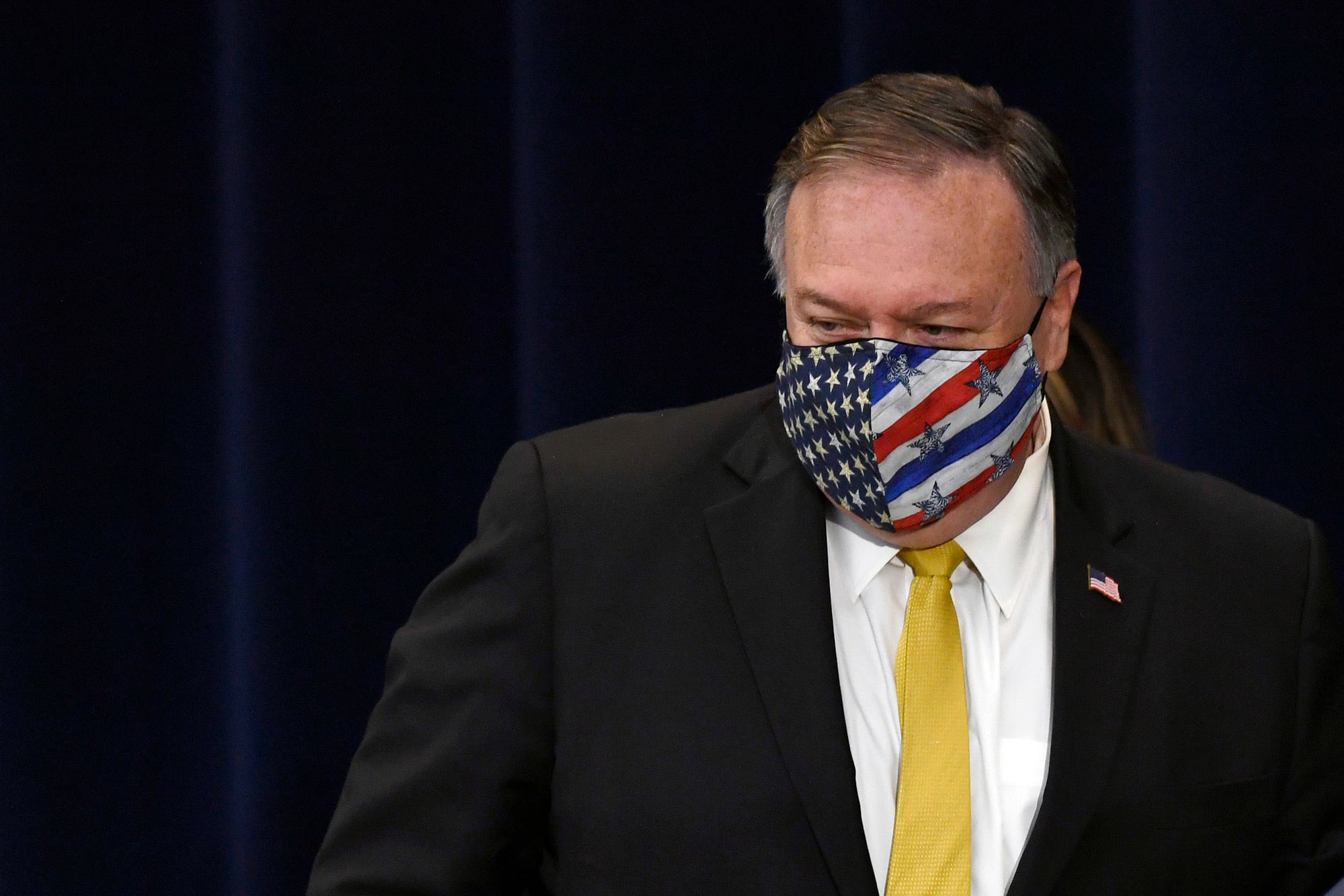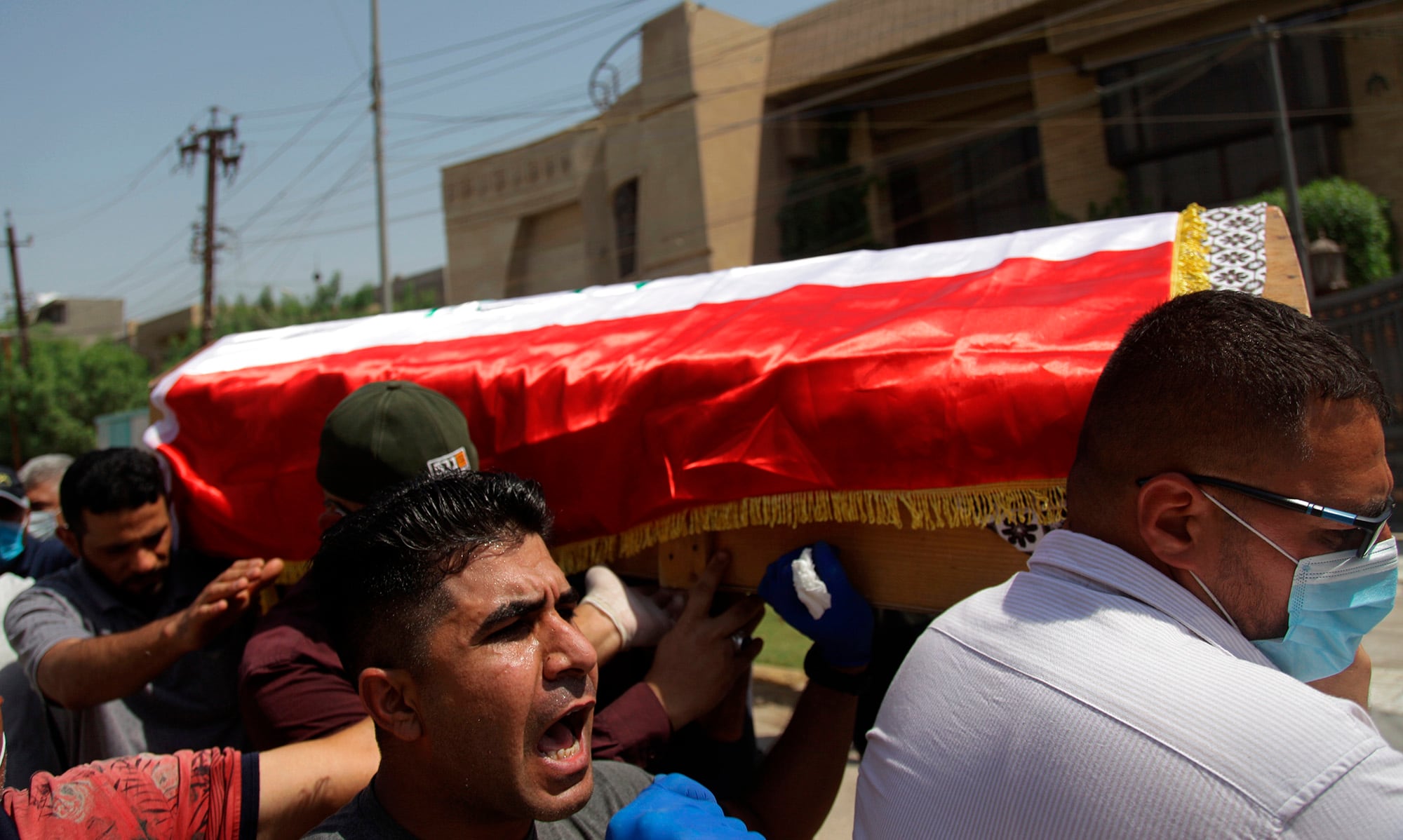BAGHDAD — The Trump administration has warned Iraq that it will close its embassy in Baghdad if the government does not take swift and decisive action to end persistent rocket and other attacks by Iranian-backed militias and rogue armed elements on American and allied interests in the country, U.S., Iraqi and other officials said Monday.
As news of the warning sent shockwaves across Baghdad, Iraq’s military said a Katyusha rocket hit near Baghdad airport, killing five Iraqi civilians and severely wounding two others.
A U.S. official said the administration’s warning was given to both Iraq’s president and prime minister but that it was not an imminent ultimatum. The official was not authorized to discuss the matter publicly and spoke on condition of anonymity.
The warning signals the administration’s increasing frustration and anger with ongoing rocket fire from Iranian-supported groups on or near the vast U.S. Embassy compound in Baghdad as it steps up pressure on Iran with the re-imposition of crippling sanctions. However, closing the embassy and withdrawing U.S. personnel from Baghdad would signal a significant retreat from a country in which successive administrations have invested massive amounts of money and lives.
RELATED

The threat to evacuate the embassy, which has stoked concerns in Baghdad of a diplomatic crisis, was first delivered to President Barham Saleh on Tuesday in a phone call with U.S. Secretary of State Mike Pompeo, Iraqi officials said. Pompeo then repeated the warning to Iraqi Prime Minister Mustafa al-Kadhimi on Saturday, the officials said.
Pompeo told Saleh that if the U.S. presence continues to be targeted, measures would be taken to close the embassy and a “strong and violent” response would follow against the groups responsible for the attacks, according to three Iraqi officials with knowledge of the call.
Pompeo went further with al-Kadhimi on Saturday, telling the prime minister that the U.S. will initiate plans to withdraw from the embassy, according to the Iraqi officials who spoke on condition of anonymity in line with regulations.
An official announcement has not been made by the Americans. But the Trump administration has not been shy about expressing its anger and concern about continuing rocket attacks by Iranian-backed groups on or near the embassy compound.
RELATED

In a tangible sign of a strain in U.S.-Iraq relations, the State Department shortened an Iran sanctions waiver deadline by 60 days last week. The previous waiver, crucial for Iraq to import badly needed Iranian gas to meet power demands, gave the government 120 days.
Without the waiver, Iraq would suffer crippling sanctions barring it access to U.S. dollars.
Despite comments from U.S. officials that a deadline on closing the embassy is not in place, Iraqi officials appeared to be under the impression they have until the waiver expires in two months' time to take action.
“America will observe what measures the government of Iraq takes within two months,” one senior Iraqi official said. During this time, al-Kadhimi’s administration must halt the targeting of foreign missions, military installations and logistics convoys destined for the U.S.-led coalition or else, “aggressive” action would follow, the official said.
Iraq’s leadership is feeling the heat.
Al-Kadhimi, Saleh and Parliament Speaker Mohamed al-Halbousi held a meeting late Sunday in which all three leaders said they supported measures to bring arms under the authority of the state and to prevent the targeting of diplomatic missions.
So far, Iraqi authorities have redistributed some security forces inside the Green Zone.
The Iraqi officials also said two factors might determine whether Iraq’s leadership can walk back from an impending diplomatic crisis: Security fallout from protests planned in the coming weeks to mark one year since mass anti-government demonstrations began, and domestic politics inside the U.S. ahead of the November federal election.
“We expect large crowds,” said one official of the protests. “And we expect it will impact American thinking.”
Two Western diplomats said they had been informed that the U.S. has started the process of closing its sprawling facility inside the heavily fortified Green Zone, but could not provide details. The U.S. Embassy declined to comment.
Closing the facility, which is by physical size the largest U.S. diplomatic mission in the world, is expected to be a complex and time-consuming process. The embassy was already functioning at minimum levels since March due to the coronavirus and ongoing security threats.
Diplomats were told the U.S. had already started the process of closing but would “re-evaluate while progressing,” one Western official said, suggesting the decision was reversible if security inside the Green Zone improved. In 2018, Pompeo ordered the closure of the U.S. consulate in the southern Iraqi city of Basra due to attacks by Iranian-backed militias.
As a member of Congress, Pompeo had been a strong critic of the Obama administration and former Secretary of State Hillary Clinton over the deadly attack on U.S. diplomatic facilities in Benghazi, Libya. He is loathe to see a repeat of such an attack on his watch, according to current and former U.S. officials. In addition, Trump has been clear about his desire to reduce the U.S. presence in the Mideast, although he has focused primarily on the military.
However, closing the embassy after the massive U.S. investment of lives and money in Iraq since 2003 would likely draw significant criticism from Trump allies in Congress, including lawmakers who supported the invasion and ouster of Saddam Hussein. Ahead of November’s election, it is not clear if Trump would be willing to invite that criticism.
The State Department declined to comment on the calls between Pompeo and Iraq’s leadership, but said the U.S. will not tolerate threats.
“We have made the point before that the actions of lawless Iran-backed militias remains the single biggest deterrent to stability in Iraq,” the department said. “It is unacceptable for Iran-backed groups to launch rockets at our embassy, attack American and other diplomats, and threaten law and order in Iraq.”
Meanwhile, attacks targeting convoys continue.
On Monday, five Iraqi civilians were killed and two severely wounded after a Katyusha rocket hit near Baghdad airport, Iraq’s military said. The rocket may have been targeting the international airport but struck a residential home close by instead, Iraqi security officials said, requesting anonymity in line with regulations.
Also on Monday, a roadside bomb targeted a convoy carrying materials destined for U.S. forces southwest of Baghdad, two Iraqi security officials said. The officials spoke on condition of anonymity in line with regulations.
Lee reported from Washington. Associated Press writer Qassim Abdul-Zahra contributed from Boston.
